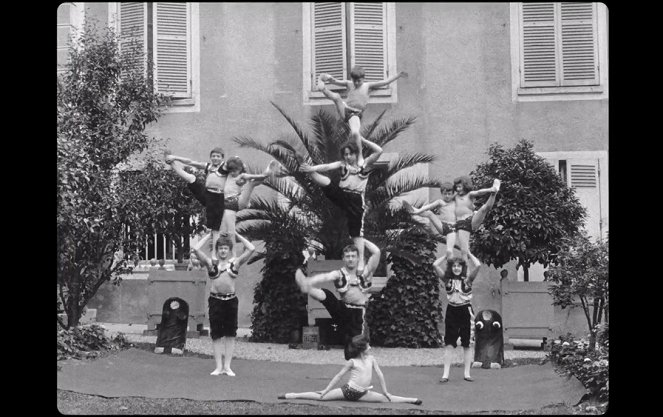Réalisation:
Thierry FrémauxScénario:
Thierry FrémauxActeurs·trices:
Thierry Frémaux (narrateur), Martin Scorsese, Louis Lumière (i.a.), Auguste Lumière (i.a.), Frederic Lumiere (i.a.)VOD (1)
Résumés(1)
En 1895, les frères Lumière inventent le Cinématographe et tournent parmi les tout-premiers films de l'histoire du cinéma. Mise en scène, travelling, trucage ou remake, ils inventent aussi l'art de filmer. Chefs-d'œuvre mondialement célèbres ou pépites méconnues, cette sélection de films restaurés offre un voyage aux origines du cinéma. Ces images inoubliables sont un regard unique sur la France et le Monde qui s'ouvrent au 20e siècle. (Ad Vitam)
(plus)Critiques (4)
The flawless fulfilment of a simple concept: 108 (not 114) restored Lumiére films in their original format, ranging from “classics” to curiosities that you will search in vain for on YouTube, divided into eleven thematic blocks (e.g. origins, people at work, children, comedies). We see each of them from beginning to end accompanied by Frémaux’s commentary. He delivers a humorous and informative account of the history of the individual films and of cinema as such, and where necessary, he explains who and what we are seeing, offers an in-depth analysis of the compositions (the popular division of the picture into multiple plans), the “acting” (the overacting guy slaps his knees to make us realise that the given scene is supposed to be funny), the timing of the action (everything had to have taken place in approximately 50 seconds) and how it was staged (the use of diagonal lines, movement in the background), points out details that the viewer might not have noticed otherwise and which are sometimes rather important and sometimes serve mainly to entertain (here 5,000 soldiers are marching, three of them don’t have moustaches, this one, this one and this one; in the bottom right-hand corner we see a bottle of cognac, so this is obviously a French breakfast). By the end, you will have a solid overview of what the Lumiéres (and their cinematographers sent out into the world) filmed and you will realise that they spent significantly more time, for example, figuring out where best to place the camera than the seeming primitiveness of these films would suggest. For cinephiles, Lumiére! is a film in the “I've seen it and now I can die” category; for film students, it is a useful teaching aid; for everyone else, it is an hour and a half of little films that are so short they can never get boring. 90%
()
A great reference for anyone learning about (or revisiting) the early days of film. The commentary is more amusing than actually adequate, but the films are wonderful and logically categorized. It's almost chilling. Kříženecký has some explicitly identical films, but that's also logical.
()
It's amazing that the documentary was conceived in such a way that, in addition to cinephiles, it would be equally interesting for the average viewer. Okay, I'm sure not everyone is going to like the 108 static shots, but I still bow to Frémaux, who has taken the trouble to give the most classic pieces of cinema such a new adventurous touch and a sense of joy in discovering the first steps of today's most influential global medium. And the post-credit scene is better than all of Marvel's. :D
()
If it doesn't happen a bit on its own, then assemble a documentary from 108 beloved short films and comment enthusiastically on their bravura and pioneering. But what does it matter when this stunningly photographed testimony to the era reliably takes your breath away with almost every frame. I commend the division into meaningful chapters and the commentary, which often makes clear in simple terms how to work with the image, space, and mood of the scene. The Lumières were right – if you have a camera, take it to the streets.
()

